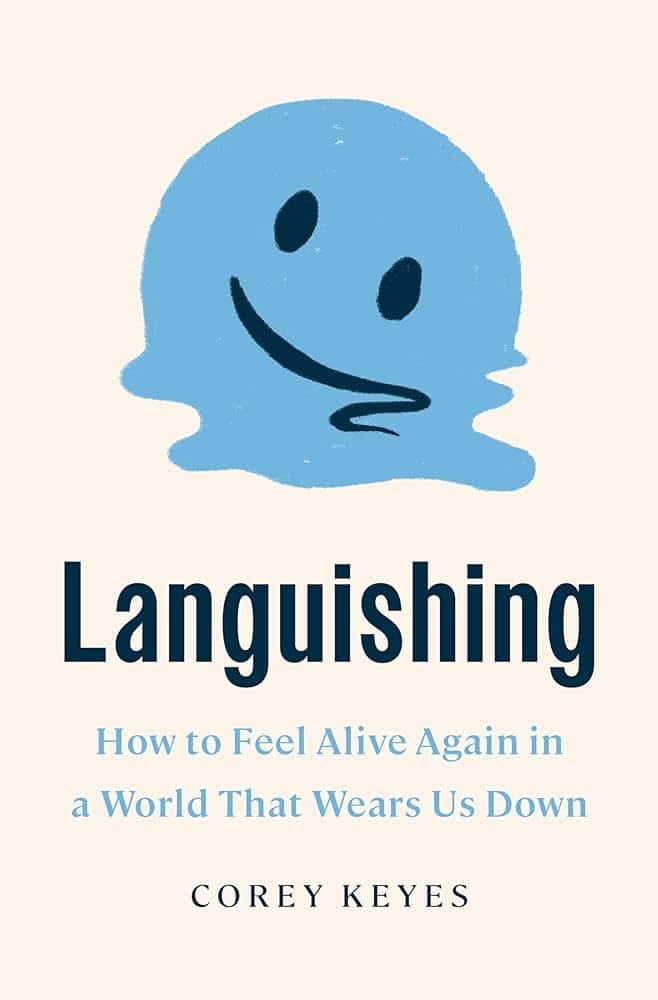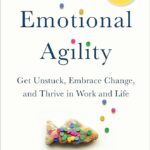Book: Languishing: How to Feel Alive Again in a World That Wears Us Down
By: Corey Keyes
Reviewed by: Leah Parkhill Reilly
The Premise: The term “languishing” really hit the public consciousness in 2021 when Adam Grant wrote his highly shared NY Times article “There’s A Name for The Blah You’re Feeling: It’s Called Languishing”. It was a revelation to learn about the “neglected middle child of mental health” that can dull motivation and focus and struck a chord for many who were surviving but not thriving during a global pandemic. Grant drew inspiration for his article from the 20-plus-years body of research by sociologist and professor at Emory University, Corey Keyes. Keyes has been at the forefront of the positive psychology movement and has since branched into researching more deeply the roots of what languishing means and the conditions that lead to good mental health (aka flourishing).
Did the NY Times article result in Corey Keyes hitting the “fast forward” button on writing the book that summarizes his life’s research, likely not, the article was mentioned in the book, but this is a deeply thought out and meticulously researched text. It provides a fulsome exploration on what languishing truly means, and how it is distinguished from more depressive states (but can be a gateway if left unchecked). It also explores the continuum from languishing to flourishing and defines flourishing both in terms of self (psychological well-being) and others (social well=being). The first section of the book also includes a self-assessment to understand what aspects of your life may be flourishing more than others. In the second half of the book Keyes then explores what he refers to as the “five vitamins of flourishing” and provides action steps for each to bring more of this into one’s own life.
The Bottomline: I enjoyed this book, but I do wish there were a few more tangible tools and resources to support the “five vitamins” of flourishing. I could have used a third section with thinking tools to “activate my flourishing plan”.
I was hopeful when I first dove into the book and found the case for why so many people are languishing to be a fascinating read. Keyes explores how societal conditions have elevated the quest perpetual “happiness” to the point that we can at times demonize and avoid all other feelings. As a result, many of us operate in a state of continuously seeking the next dopamine or serotonin hit to get the happy feeling again (e.g. through gaming, online shopping etc). He also discusses the impact of isolation, loss of community and increased use of social media and makes a compelling link to the rise in languishing among youth.
Keyes then moved onto a deep exploration of what he termed “the domains of excellence” that relate to both social and psychological well-being. These being: 1. Acceptance (loosening the judgement and need to control), 2. Autonomy (comfort with self-expression, being an independent thinker), 3. Connection (cultivation of positive relationships), 4. Competence (managing the complexity of daily life), 5. Mastery (motivation to learn and grow) and 6. Mattering (feeling that what you do matters).
As a coach, leader and parent I can see a direct connection to how I might help cultivate these six elements in those around me and Keyes section on the “five vitamins” provided a bit of a teaser with actions that can be taken for flourishing. Ultimately it does come down to the reader to “take the medicine” so to speak and put a plan into action.
Recommendation: Thought provoking read for anyone who might be feeling “meh” or for anyone looking for ideas on supporting others who might be languishing.




